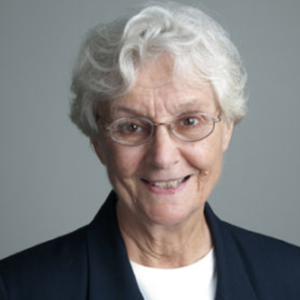
Readings:
Reading I: Isa 56:1, 6-7
Psalm: 67:2-3, 5-6, 8
Reading II: Rom 11:13-15, 29-32
Gospel: Matt 15:21-28
Who’s in your circle?
In the minds of many people, a circle is a symbol of inclusivity. We speak of a circle of family or friends, those who surround us with love and support. In such a configuration, all are equal members. Though there may be obvious differences in age or abilities, there is no real hierarchy of positions. Round tables for discussion are often preferred, for this very reason. All participants can be seen and no one can claim a place of privilege.
However, circles can also be very exclusive. Their lines define who is included and who is not. Once a circle has been formed, it is very difficult to break it open in order to add more members. In such situations there is often the circle, and then the inner circle. Exclusive circles can be drawn along lines of gender, race, ethnic origin, class, ability, or interest, to name but a few criteria of selection.
One of the great sources of scandal for us is the Christian faith’s insistence on the universal embrace of God. At first glance, we might be thrilled with this tenet of our faith. However, a closer look will show that we are not always happy with the implications of this teaching. An example of this can be found in today’s first reading. It speaks of “The foreigners who joined themselves to the Lord…them I will bring to my holy mountain.” Doesn’t this inclusion of foreigners challenge the privileged position of the ‘chosen people’? Actually, no!
Though we use the phrase ‘chosen people’ to refer first to the Jewish nation and then to the Christian community, its real meaning is inclusive rather than exclusive. Ancient Israel believed that it was chosen to be the instrument through which all other people would be brought to God. There were times when the people were faithful to this call, when they believed that “all nations shall stream toward [the mountain of the Lord’s house” (Isa 2:2-3; Mic 4:1-2). When they were not faithful, God made sure that those who were considered ‘outsiders’ gained access. In today’s Isaian passage, God declares: “…them I will bring to my holy mountain.”
In the gospel we find Jesus forced to step out of any Jewish ethnic bias in order to respond to the persistent pleas of a devoted Canaanite mother. This is a bold parent. Women did not normally speak to men in public, not even to their own husbands. Furthermore, she was a Canaanite woman. It may be true that Jesus was out of the confines of Jewish territory, but the hostility between the two ethnic groups endured on both sides of the territorial boundaries. The woman’s maternal concern and her belief in Jesus’ power bypassed all prejudice on her part as she defied custom and pleaded her cause. Her concern and her faith carried him beyond such barriers as well, for he was moved to grant her request. His words to her sound harsh to contemporary ears. They reflect the disdain with which the Jewish community sometimes viewed those who were not members of their circle. His compassion showed that neither Jesus himself nor the power of God that he exercised was confined to that circle.
Paul walks a narrow tightrope in today’s reading. Throughout his ministry, he insisted that only faith in Jesus could save, not obedience to the laws and customs of Israel. In a sense he has broken through one exclusive circle, only to trace a new one. However, here he argues that those with this faith in Jesus are really no better than the Jewish people who did not have it. Paul insists that the Jewish people have not really been excluded, “for the gifts and the call of God are irrevocable.” In fact, all have in one way or another been disobedient. Despite this, all have the mercy of God available to them, because the embrace of God is not a closed circle.
From the very beginning, the church has struggled with the dilemma created by its insistence on faith as a requisite for salvation and its belief in God’s loving concern for all people. Down through the ages, various resolutions to the dilemma have been offered. However, the struggle has made its way to us still unresolved in our own day. Despite the variety of solutions offered, one point in the argument has stood firm: The embrace of God is not a closed circle.
We live in a time when some insist that if you don’t hold the same values that they do, you are not a true believer. Sometimes the accusation is even worse; they maintain that you actually threaten religious values. This disparity in esteeming the religious values of others not only exists between diverse religious cultures, but is found within religious denominations themselves This attitude is contrary to the depiction of authentic biblical faith as found in today’s readings.
Dianne Bergant, CSA
Carroll Stuhlmueller, CP, Distinguished Professor Emerita of Old Testament Studies